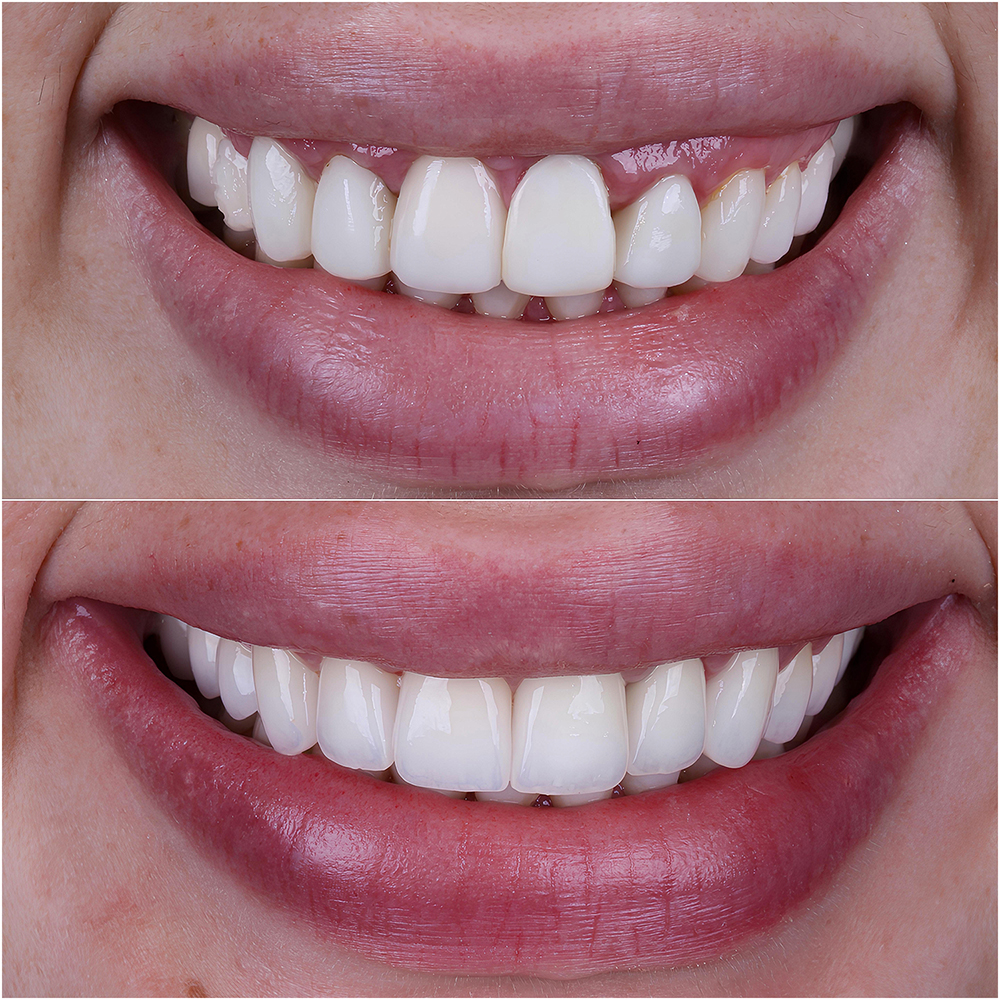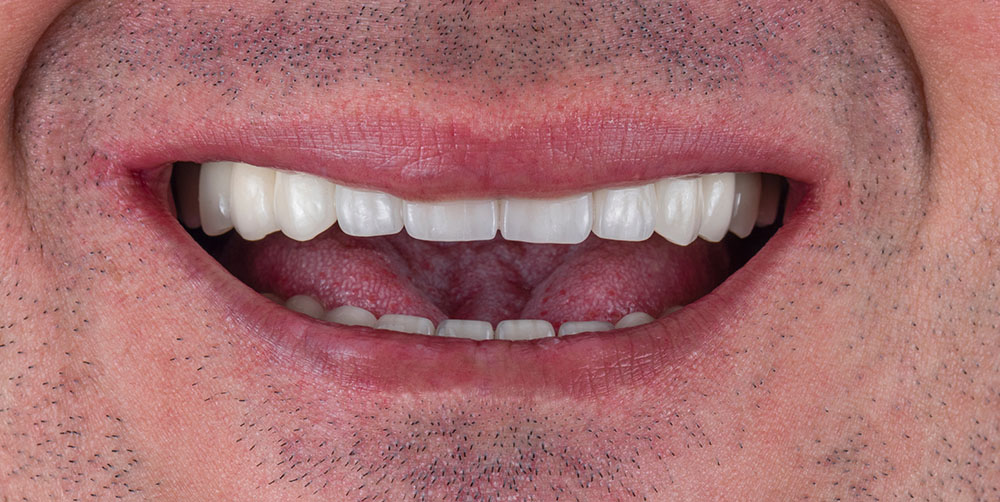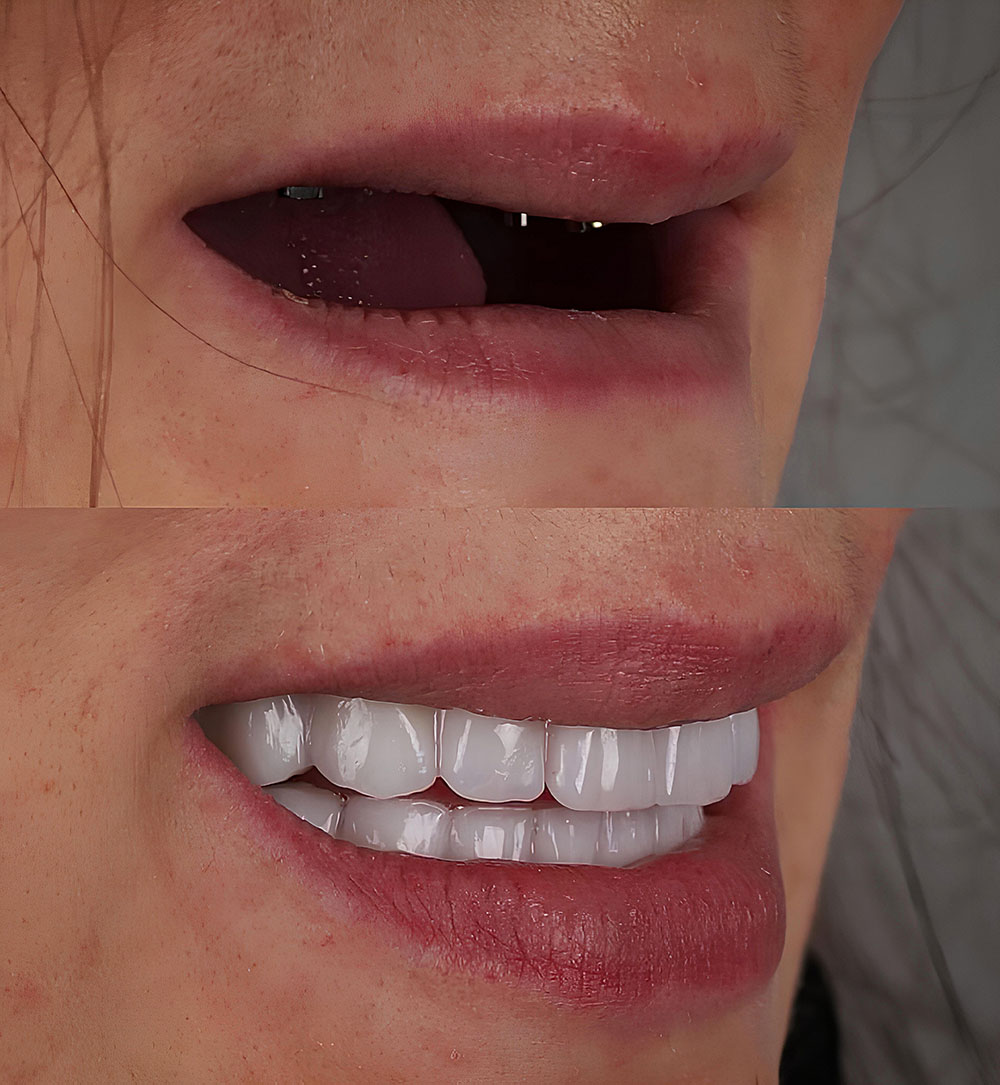Say Goodbye to Gaps: Missing Teeth and Tooth Replacement
Are you tired of hiding your smile due to missing teeth? Say goodbye to gaps and hello to a confident, complete smile. Whether you lost a tooth due to decay, injury, or aging, it’s important to understand your options for restoring your smile and oral health.
In this comprehensive guide, we will explore the various tooth replacement solutions available to you. From dental implants to dentures, we’ll cover the pros and cons of each option, helping you make an informed decision that suits your unique needs.
We’ll also delve into the importance of replacing missing teeth, beyond just cosmetic reasons. Did you know that leaving gaps in your smile can lead to oral health issues such as bone loss and misalignment of the remaining teeth?
Causes and consequences of missing teeth
Missing teeth can arise from a variety of causes, and understanding these reasons is crucial to addressing the problem effectively. One of the most common reasons for tooth loss is dental decay. When cavities are left untreated, they can progress to the point where the tooth becomes irreparable, necessitating its extraction. Gum disease, another prevalent cause, can lead to the deterioration of the supporting structures of the teeth, resulting in tooth mobility and eventual loss. Accidents and injuries, particularly in sports or falls, can also contribute to the loss of teeth, impacting both aesthetics and functionality.
The consequences of having missing teeth extend beyond mere cosmetic concerns. One immediate effect is the alteration of one’s smile, which can lead to decreased self-esteem and confidence. Individuals with gaps in their smiles often feel self-conscious, leading them to avoid social situations or hide their smiles in photographs. However, the ramifications can be much more serious. Missing teeth can disrupt normal chewing and speaking, making daily activities difficult and uncomfortable. This can lead to changes in diet, as individuals may avoid certain foods due to difficulty in chewing.
Perhaps one of the most significant consequences of missing teeth is the impact on oral health. The absence of a tooth can lead to the drifting of adjacent teeth into the empty space, resulting in misalignment and potential bite issues. Over time, this misalignment can also contribute to jaw problems, including temporomandibular joint disorder (TMJ). Furthermore, the loss of teeth can trigger bone loss in the jaw, as the stimulation provided by tooth roots is no longer present. This bone loss can alter the shape of the face, leading to an aged appearance and creating a cascade of health complications that may require extensive treatments.
Different options for tooth replacement
When faced with missing teeth, several replacement options are available, each with distinct advantages and disadvantages. Understanding these alternatives is essential for making an informed decision that aligns with your specific needs and lifestyle. One of the most popular options is dental implants, which offer a permanent solution that closely mimics the natural tooth structure. Implants consist of a titanium post surgically placed into the jawbone, providing a strong foundation for a crown that replicates the appearance of a natural tooth.
Another common option for tooth replacement is dentures. Full dentures are used when all teeth are missing, while partial dentures are suitable for those with some remaining natural teeth. Dentures are removable prosthetics that can restore functionality and aesthetics, although they may require adjustments over time. They are often more affordable than implants but may not provide the same level of stability or comfort.
Bridges are also a viable solution for replacing missing teeth, particularly when one or two adjacent teeth are missing. A bridge consists of one or more artificial teeth anchored to the surrounding natural teeth, effectively filling the gap. While bridges can offer a more permanent solution compared to dentures, they do require alteration of the adjacent teeth, which may not be ideal for everyone. Other options such as partial dentures and flippers are temporary solutions that can be used while waiting for more permanent restoration. Each of these alternatives has unique considerations that must be evaluated based on individual circumstances.
Dental implants: The gold standard for tooth replacement
 Dental implants are often considered the gold standard for tooth replacement due to their durability, functionality, and aesthetic appeal. One of the primary advantages of implants is their ability to integrate with the jawbone, providing a stable and secure foundation for the replacement tooth. This integration process, known as osseointegration, helps to preserve the bone structure in the jaw, preventing the bone loss that typically occurs after tooth extraction. As a result, dental implants not only restore the appearance of a complete smile but also contribute to long-term oral health.
Dental implants are often considered the gold standard for tooth replacement due to their durability, functionality, and aesthetic appeal. One of the primary advantages of implants is their ability to integrate with the jawbone, providing a stable and secure foundation for the replacement tooth. This integration process, known as osseointegration, helps to preserve the bone structure in the jaw, preventing the bone loss that typically occurs after tooth extraction. As a result, dental implants not only restore the appearance of a complete smile but also contribute to long-term oral health.
One of the most compelling reasons to choose dental implants is the freedom they provide in terms of diet and lifestyle. Unlike dentures, which may slip or move during eating or speaking, implants function just like natural teeth. Patients can enjoy their favorite foods without hesitation, maintaining a varied and nutritious diet. Furthermore, dental implants require no special care beyond regular oral hygiene practices, making them a convenient choice for those looking for a hassle-free solution.
Aesthetic considerations also play a significant role in the popularity of dental implants. They are custom-designed to match the size, shape, and color of your natural teeth, ensuring a seamless blend with your smile. Many patients find that implants enhance their facial structure and improve their overall appearance, boosting self-confidence and promoting a more positive self-image. With a success rate of over 95%, dental implants are a reliable long-term solution for individuals seeking to replace missing teeth effectively.
Dentures: A traditional solution for missing teeth
Dentures have been a traditional solution for missing teeth for centuries, providing an effective way to restore both function and aesthetics for individuals with tooth loss. Full dentures replace an entire arch of missing teeth, while partial dentures fill in gaps caused by one or more missing teeth. One of the primary advantages of dentures is their affordability compared to other tooth replacement options like dental implants. They can be a straightforward and accessible solution for those who may have budget constraints.
Another benefit is the relatively quick turnaround time for obtaining dentures. Unlike dental implants, which require multiple appointments and a healing period, dentures can often be created and fitted in a matter of weeks. This makes them a convenient option for individuals seeking immediate restoration of their smile. Additionally, modern dentures are designed to be more comfortable and natural-looking than ever before, with advancements in materials and technology contributing to improved fit and aesthetics.
However, dentures also come with a set of challenges that patients should be aware of. One of the primary concerns is the potential for slippage or movement during daily activities such as eating and speaking. While modern dentures are designed for a secure fit, they may still require the use of adhesive products to enhance stability. Furthermore, dentures require regular maintenance, including adjustments and relining, to ensure they continue to fit properly as the shape of the gums changes over time. This ongoing care can be a drawback for some individuals who prefer a more permanent solution.
Bridge work: An alternative to dental implants
Bridges offer a practical alternative to dental implants for individuals with one or two missing teeth. This restorative solution involves anchoring artificial teeth, known as pontics, to the adjacent natural teeth, effectively filling the gap in the smile. One of the main advantages of bridges is their ability to restore both function and aesthetics relatively quickly. Unlike implants, which require a surgical procedure and a healing period, bridges can often be placed in just a couple of appointments, making them a more immediate solution for tooth replacement.
Bridges help to maintain the alignment of the remaining teeth by preventing them from shifting into the empty space left by the missing tooth. This is crucial for preserving the bite and overall oral health. Additionally, bridges can enhance speech and chewing ability, allowing individuals to resume normal activities without discomfort or embarrassment. They can be designed to match the color and shape of the surrounding teeth, resulting in a natural appearance.
However, bridge work does have its limitations. One significant drawback is that the adjacent teeth must be altered to accommodate the crowns that support the bridge. This means that healthy teeth are compromised for the sake of the restoration, which may not be ideal for everyone. Furthermore, bridges do not provide the same level of jawbone preservation as dental implants, leaving the potential for bone loss in the area of the missing tooth over time. Patients should weigh these considerations carefully when deciding if a bridge is the right option for their tooth replacement needs.
Other tooth replacement options: Partial dentures and flippers
In addition to dental implants, dentures, and bridges, there are other tooth replacement options available, including partial dentures and flippers. Partial dentures are designed for individuals who have several missing teeth but still retain some natural teeth. These removable appliances consist of a metal or plastic framework that holds artificial teeth, providing support and restoring function. Partial dentures can be a good choice for those who may not be candidates for implants or prefer a non-surgical option.
Flippers, on the other hand, are temporary partial dentures that can be used while waiting for more permanent solutions. They are lightweight and typically made of acrylic, making them easy to wear and adjust. Flippers can help maintain the appearance of a complete smile and provide basic functionality for eating and speaking. However, they are not designed for long-term use and may not offer the same level of stability as other options.
While these alternatives can be effective for certain situations, they also come with their own set of challenges. Partial dentures may require frequent adjustments to ensure a proper fit, and they can sometimes cause discomfort or irritation to the gums. Flippers, being temporary, may not provide the same level of functionality or aesthetics as more permanent solutions. It’s essential for individuals to consider their lifestyle, budget, and personal preferences when exploring these tooth replacement options.
Choosing the right tooth replacement option for you
In conclusion, the journey to restoring your smile after tooth loss involves careful consideration of various tooth replacement options. Each solution—whether dental implants, dentures, bridges, or other alternatives—has its unique set of benefits and drawbacks. The right choice for you will depend on factors such as your oral health, budget, lifestyle, and personal preferences.
You can consult a qualified dental professional to guide you through the decision-making process. As the Dental Clinic Turkey team, we can evaluate your specific situation and help you understand the implications of each option. Remember that replacing missing teeth is not just about aesthetics; it’s also crucial for maintaining your overall oral health and preventing complications such as misalignment and bone loss.
Ultimately, saying goodbye to gaps in your smile is an achievable goal. With the right information and support, you can make an informed decision that leads to a confident, complete smile. Embrace the possibilities of tooth replacement solutions and take the first step towards restoring your oral health and self-esteem.
You are invited to a free consultation with us to learn more about your options! If you want to reach us faster, you can use our WhatsApp line.


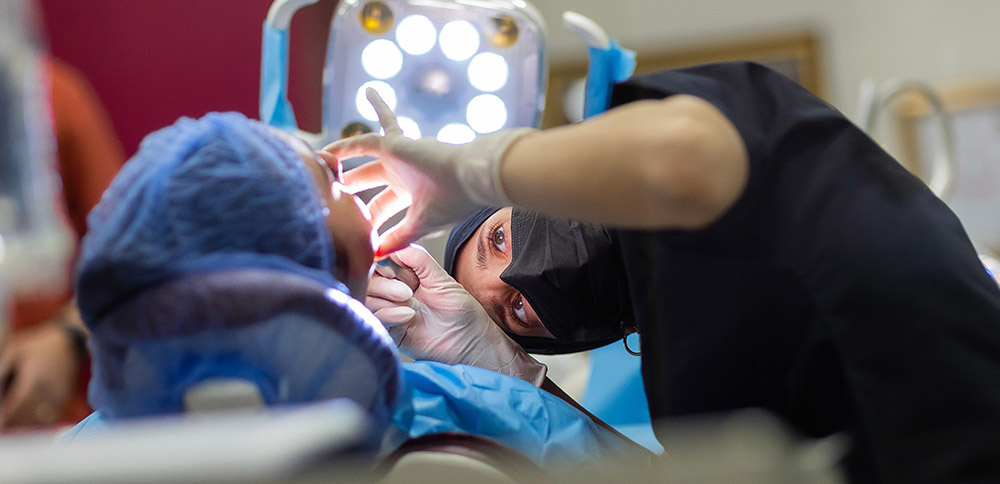
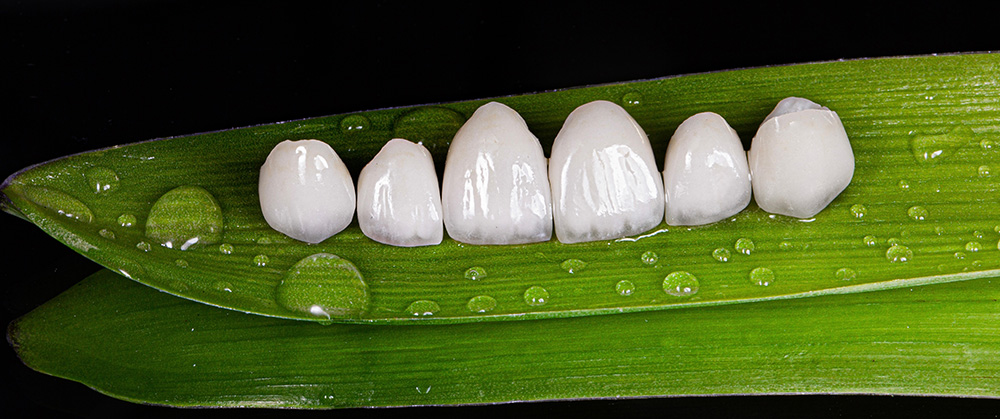
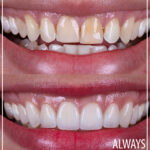
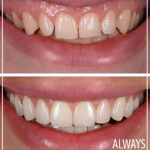
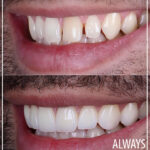
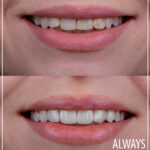

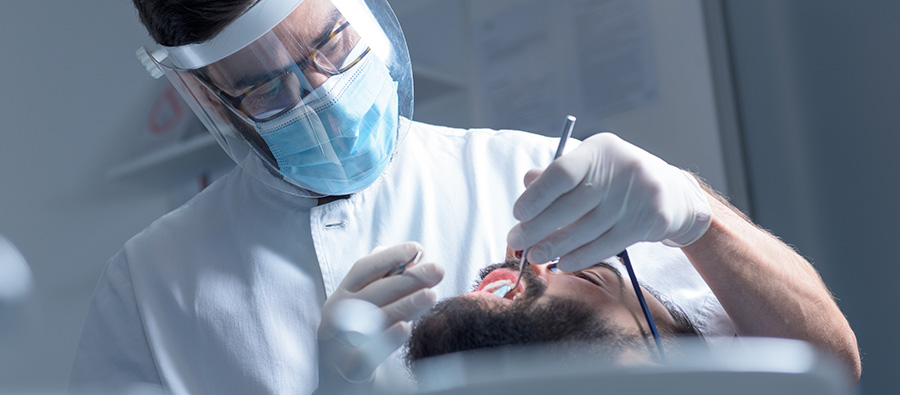
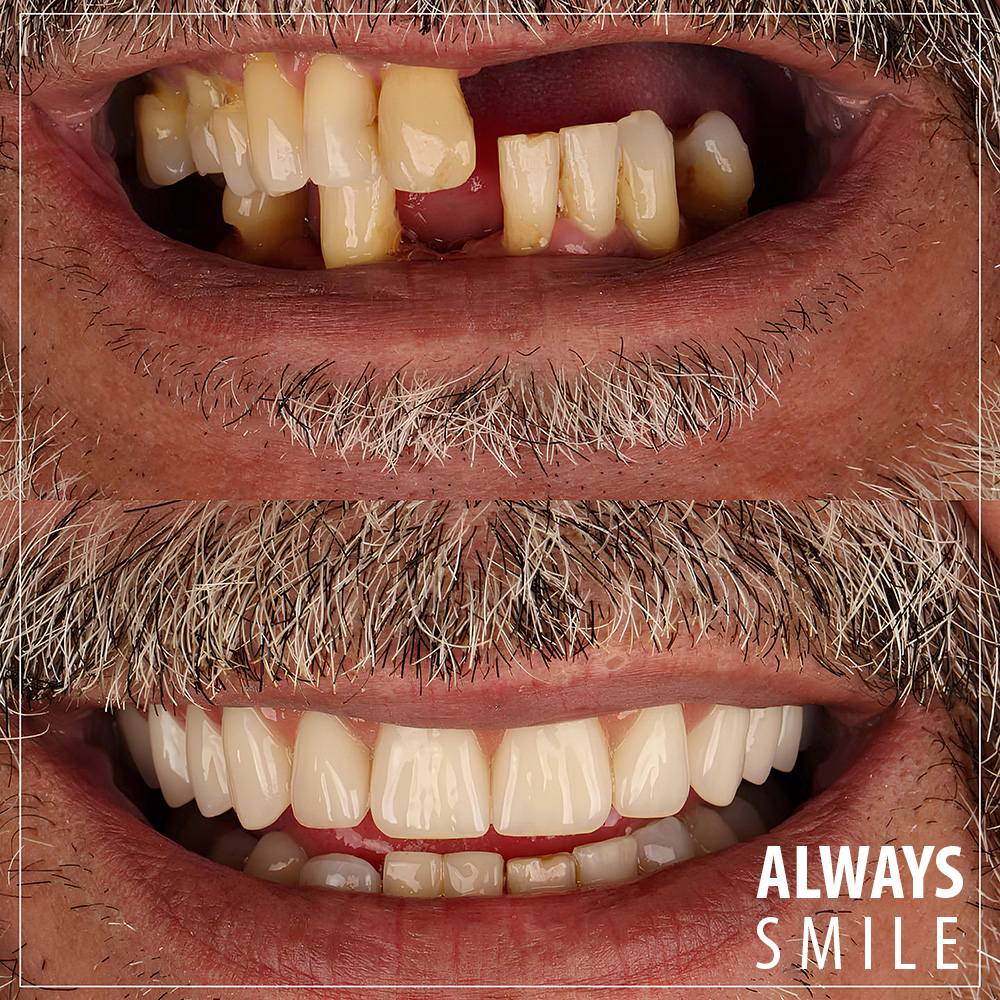 Dental implants are often considered the gold standard for tooth replacement due to their durability, functionality, and aesthetic appeal. One of the primary advantages of implants is their ability to integrate with the jawbone, providing a stable and secure foundation for the replacement tooth. This integration process, known as osseointegration, helps to preserve the bone structure in the jaw, preventing the bone loss that typically occurs after tooth extraction. As a result, dental implants not only restore the appearance of a complete smile but also contribute to long-term oral health.
Dental implants are often considered the gold standard for tooth replacement due to their durability, functionality, and aesthetic appeal. One of the primary advantages of implants is their ability to integrate with the jawbone, providing a stable and secure foundation for the replacement tooth. This integration process, known as osseointegration, helps to preserve the bone structure in the jaw, preventing the bone loss that typically occurs after tooth extraction. As a result, dental implants not only restore the appearance of a complete smile but also contribute to long-term oral health.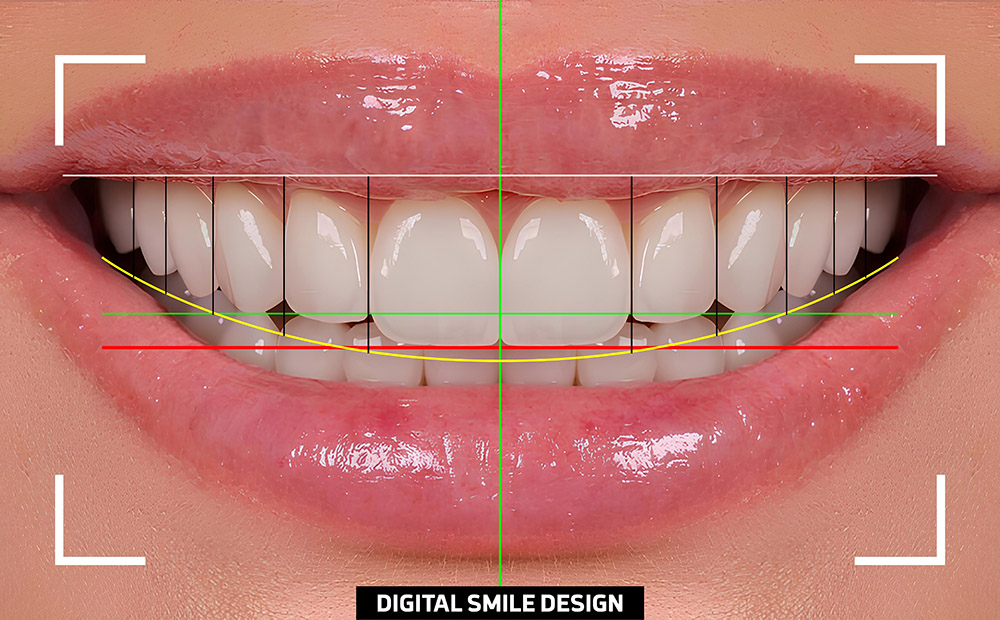
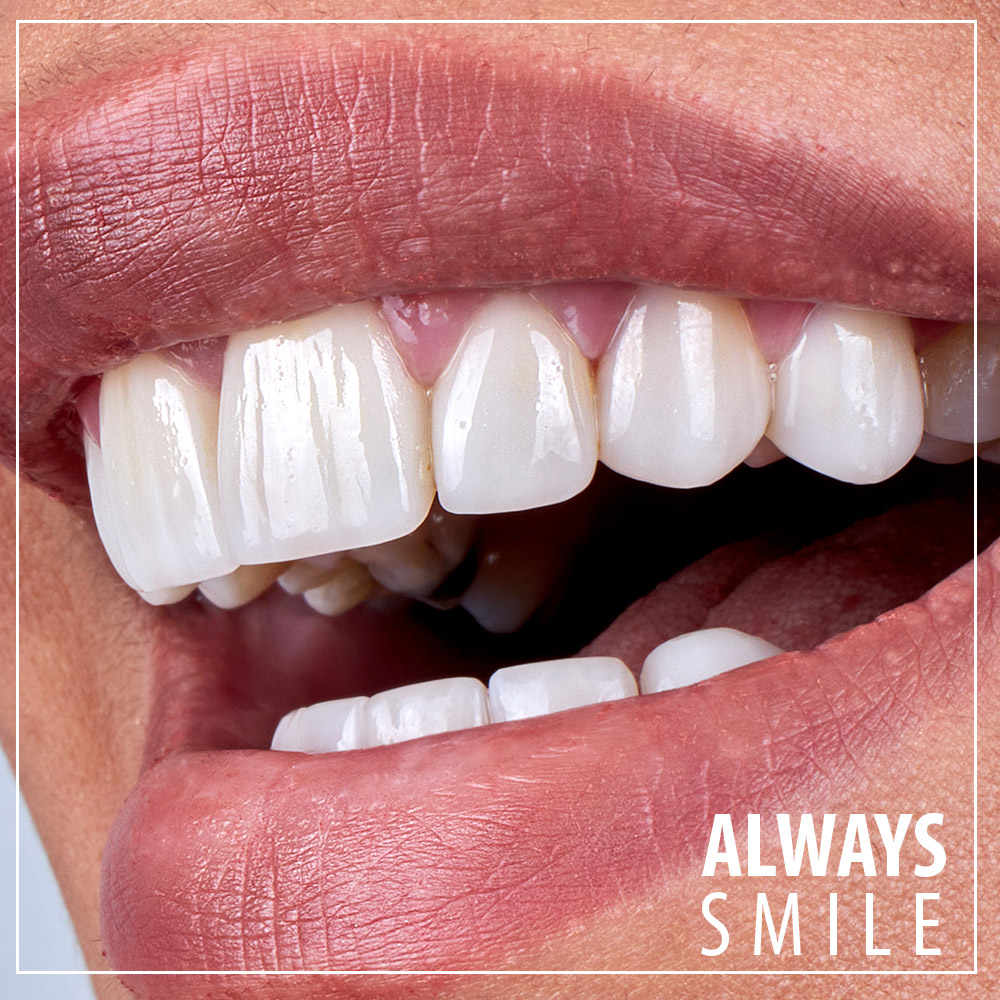 When it comes to dental tourism in Turkey, certain cities stand out as premier destinations due to their advanced dental clinics and vibrant atmospheres.
When it comes to dental tourism in Turkey, certain cities stand out as premier destinations due to their advanced dental clinics and vibrant atmospheres.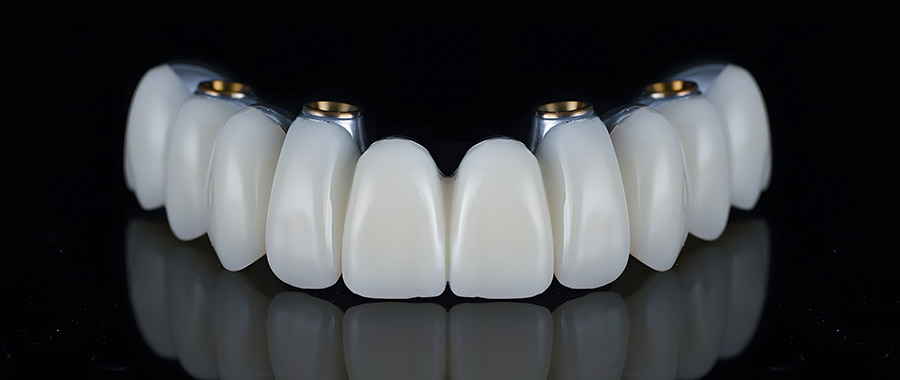
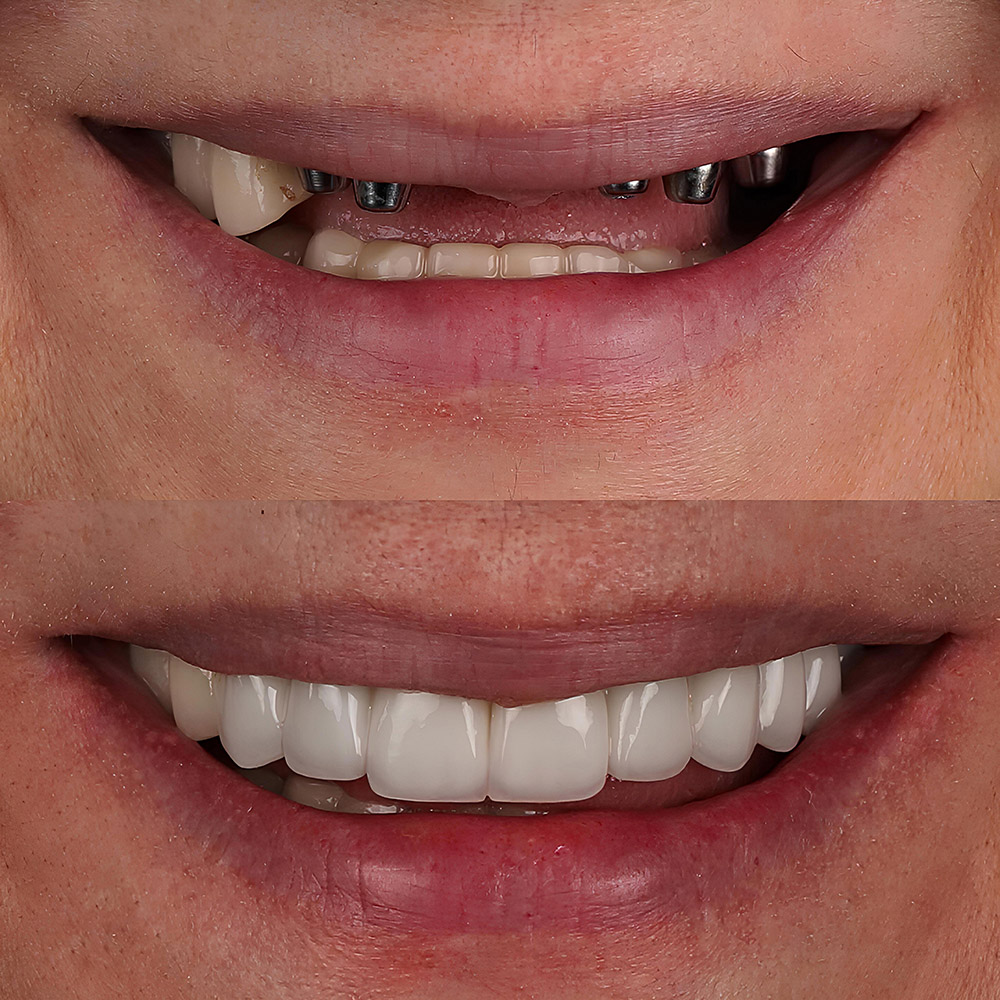 For a healthy digestive system that works well, pay attention to the importance of oral and dental health. While the reason for not being able to lose weight or get rid of reflux despite treatment may be missing teeth, problems that start in the mouth due to missing teeth can also cause stomach and digestive system diseases. The quality of chewing affects all internal organs, especially the stomach and pancreas, and when food is not chewed and ground as much as necessary, it goes to the stomach without being broken down enough, so in this case, the stomach has to take on the entire burden of digestion. This leads to excessive secretion of stomach acids and excessive work of the pancreas and gallbladder. Overwork of the pancreas invites diabetes.
For a healthy digestive system that works well, pay attention to the importance of oral and dental health. While the reason for not being able to lose weight or get rid of reflux despite treatment may be missing teeth, problems that start in the mouth due to missing teeth can also cause stomach and digestive system diseases. The quality of chewing affects all internal organs, especially the stomach and pancreas, and when food is not chewed and ground as much as necessary, it goes to the stomach without being broken down enough, so in this case, the stomach has to take on the entire burden of digestion. This leads to excessive secretion of stomach acids and excessive work of the pancreas and gallbladder. Overwork of the pancreas invites diabetes.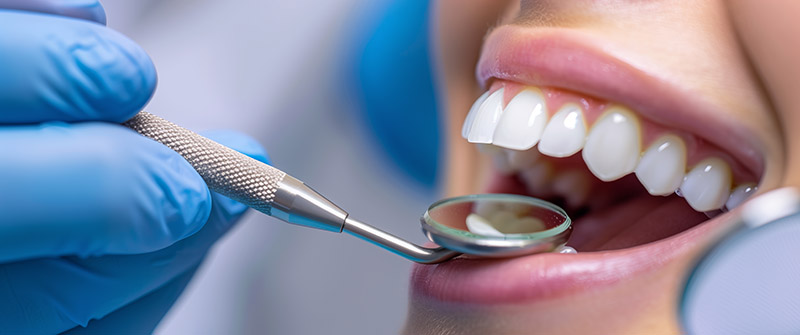
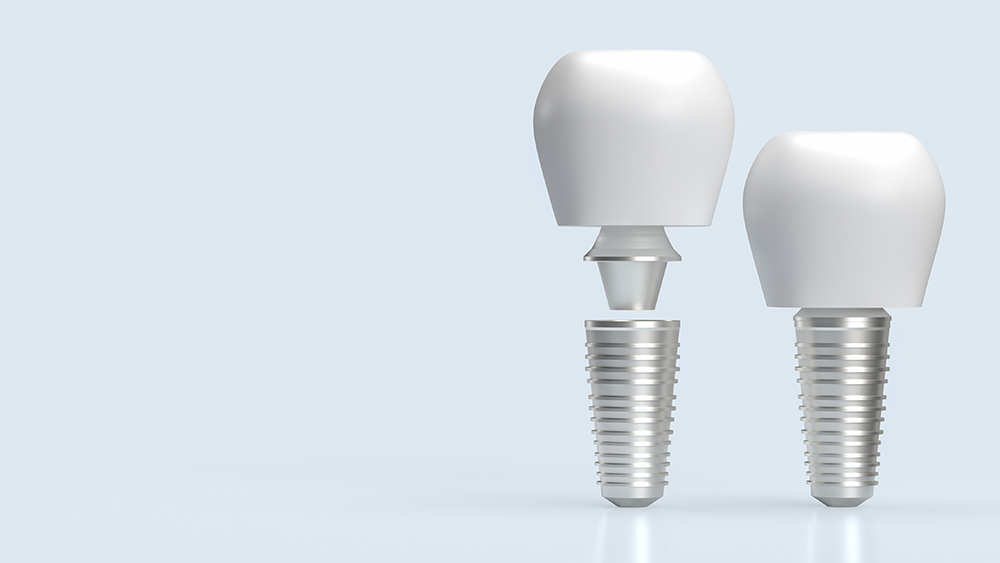
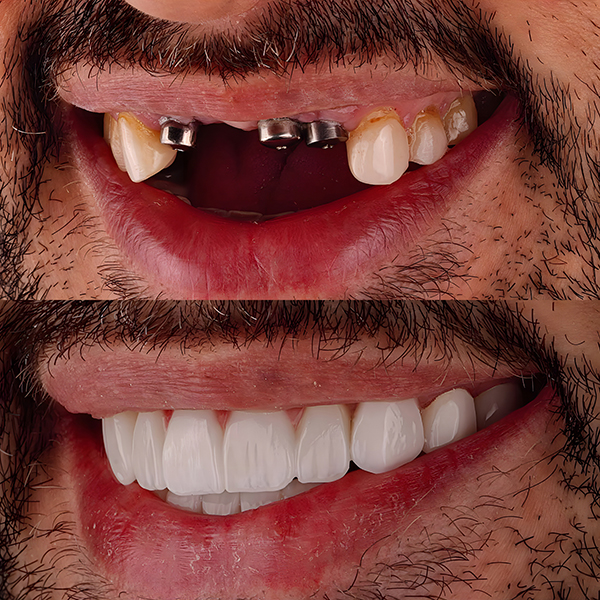 Before the operation, if any, prescribed medications should be taken. Before the implant operation, which is a surgical procedure, only the area to be treated is numbed with local anesthesia and then holes are opened in the jawbone and implants are placed in these holes. At the end of the procedure, these holes are closed with stitches and the operation is concluded. While the duration of this procedure varies according to the number of implants to be applied, it takes approximately 10 minutes for each implant to be placed in the bone. The stitches are removed approximately one week after the operation and a control examination is performed. After the procedure, the use of antiseptic mouthwashes and good oral care help to accelerate the healing process.
Before the operation, if any, prescribed medications should be taken. Before the implant operation, which is a surgical procedure, only the area to be treated is numbed with local anesthesia and then holes are opened in the jawbone and implants are placed in these holes. At the end of the procedure, these holes are closed with stitches and the operation is concluded. While the duration of this procedure varies according to the number of implants to be applied, it takes approximately 10 minutes for each implant to be placed in the bone. The stitches are removed approximately one week after the operation and a control examination is performed. After the procedure, the use of antiseptic mouthwashes and good oral care help to accelerate the healing process.
